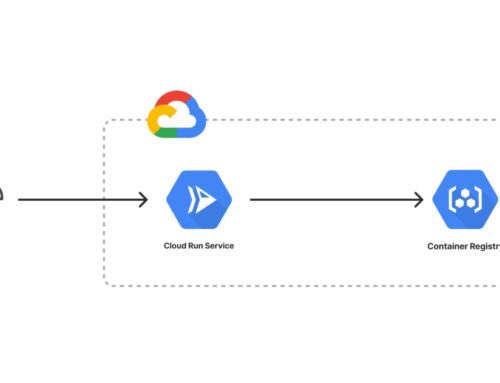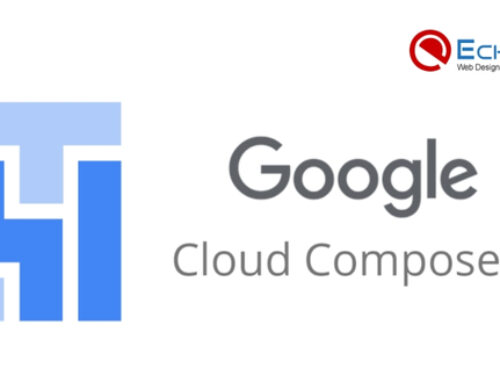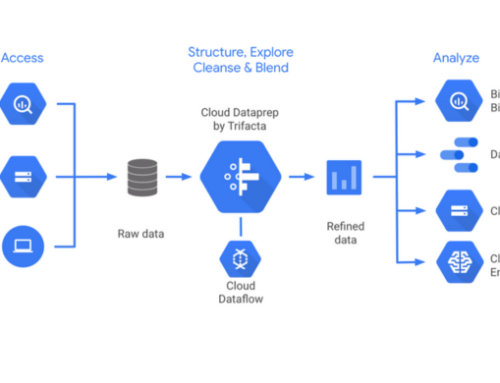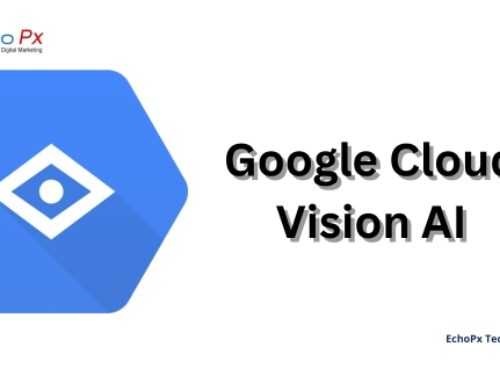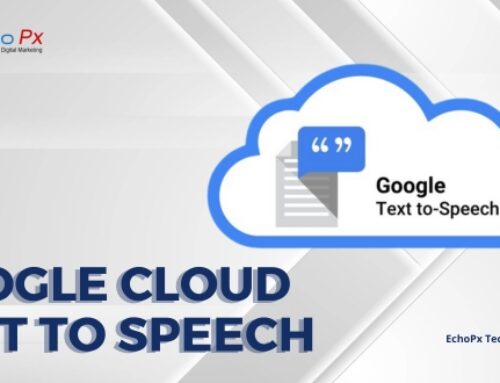Introduction
In the fast-paced and interconnected world of business, effective communication and collaboration are vital for success. As organizations strive to enhance productivity, streamline workflows, and foster innovation, the right digital tools play a pivotal role. Google Workspace, formerly known as G Suite, has emerged as a powerhouse of productivity and collaboration tools, transforming the way teams work together. To fully leverage the potential of Google Workspace, many businesses are turning to strategic Google Workspace consulting services. In this comprehensive guide, we will delve into the various aspects of these consulting services, exploring their benefits, key features, and how they can be tailored to meet the unique needs of different organizations.
Understanding Google Workspace
A. Overview of Google Workspace
Google Workspace, formerly known as G Suite, is a comprehensive suite of cloud-based productivity and collaboration tools developed by Google. It is designed to help businesses, organizations, and individuals streamline their work processes, enhance communication, and foster collaboration. Here’s a more detailed overview of some key components and features:
- Gmail:
Gmail is a widely used email platform that is a part of Google Workspace. It provides a professional email address using your organization’s domain name, along with powerful search functionality, spam filtering, and integration with other Google Workspace apps.
- Google Drive:
Google Drive is a cloud storage service that allows users to store, share, and access files from any device. It facilitates collaboration by enabling multiple users to work on the same document simultaneously and providing version history for easy tracking of changes.
- Google Docs, Sheets, and Slides:
These are the core productivity applications that provide online document editing and collaboration. Google Docs is for word processing, Google Sheets for spreadsheets, and Google Slides for presentations. They allow real-time collaboration, comments, and edits from multiple users, eliminating the need for emailing document versions back and forth.
- Google Calendar:
Google Calendar helps users schedule events, meetings, and appointments. It can be shared among team members, making it easy to coordinate schedules and plan activities collaboratively.
- Google Meet:
Google Meet is a video conferencing platform that allows users to host virtual meetings with colleagues, clients, or external partners. It supports high-quality video and audio calls, screen sharing, and integration with other Google Workspace apps.
- Google Forms:
Google Forms is a tool for creating online surveys and forms. It can be used for collecting data, conducting polls, and gathering feedback. The collected information is automatically organized into Google Sheets for easy analysis.
- Google Chat:
Google Chat is a messaging platform that enables real-time communication among team members. It supports direct messaging, group chats, and file sharing, providing a convenient way to stay connected.
- Google Sites:
Google Sites allows users to create internal websites or intranets for their teams. It provides an easy-to-use interface for building web pages without the need for coding skills.
- Security and Administration:
Google Workspace includes robust security features such as two-factor authentication, data loss prevention, and mobile device management. Administrators have control over user access, permissions, and data security settings.
The Need for Strategic Google Workspace Consulting
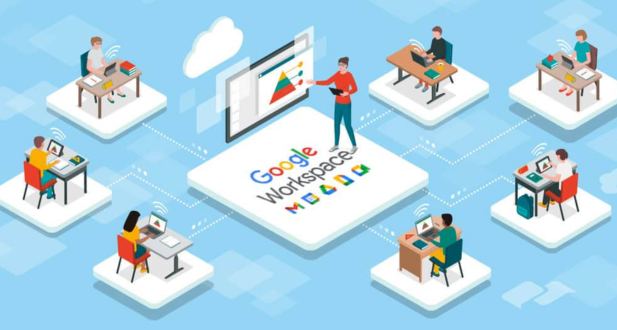
-
Customization for Organizational Goals
Tailoring to Business Objectives:
Consultants conduct a thorough assessment of the organization’s unique needs and goals.
They customize Google Workspace to specifically align with and support the broader business objectives.
This customization ensures that the tools provided are not only efficient but also directly contribute to organizational success.
Workflow Integration:
- Strategic consultants work to seamlessly integrate Google Workspace into the existing workflows of the organization.
- This integration minimizes disruptions and ensures that employees can easily adapt to the new tools without major workflow changes.
- The goal is to create a smooth transition that enhances productivity rather than causing friction.
B. User Training and Adoption
Maximizing User Proficiency:
- Consultants provide comprehensive training programs to users, ensuring they are proficient in using Google Workspace.
- The focus is on empowering employees to leverage the full range of features and capabilities offered by the platform.
- Proficient users are more likely to embrace the new tools and contribute to increased overall efficiency.
Change Management Strategies:
- Implementing change management strategies helps organizations navigate the challenges associated with adopting new tools.
- Consultants work to minimize resistance to change by addressing concerns and communicating the benefits of Google Workspace.
- This approach fosters a positive attitude towards the transition, making user adoption smoother and more successful.
C. Security and Compliance
Ensuring Data Security:
- Consultants play a crucial role in implementing robust security measures within Google Workspace.
- This includes safeguarding sensitive data and ensuring compliance with industry regulations and standards.
- The focus is on creating a secure environment that instills confidence in users regarding the protection of their data.
Data Migration Strategies:
- Strategic consultants develop and implement seamless data migration strategies.
- This involves transferring data from existing systems to Google Workspace with minimal disruptions and data loss.
- The goal is to ensure a smooth transition, allowing the organization to leverage the benefits of Google Workspace without compromising on data integrity.
Strategic Google Workspace consulting is essential for organizations looking to optimize their use of Google’s suite of productivity tools. The focus on customization, user training, and security ensures that the transition to Google Workspace is not only smooth but also maximally beneficial for the organization’s overall objectives.
Benefits of Google Workspace Consulting Services
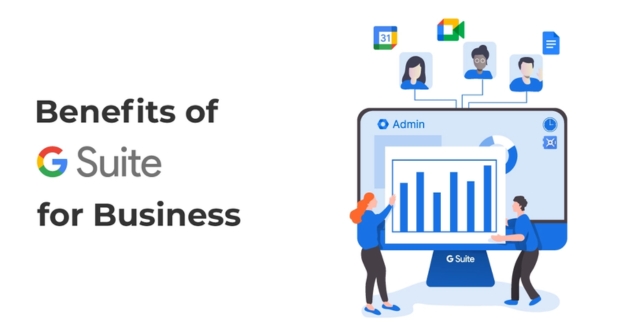
-
Enhanced Collaboration:
- Real-time Collaboration: Google Workspace allows multiple users to collaborate on documents simultaneously. This real-time collaboration fosters teamwork and accelerates project timelines as changes are instantly visible to all team members.Integrated Communication: The integration of email, chat, and video conferencing within the Google Workspace platform facilitates seamless communication. This integration reduces communication silos within organizations, enabling teams to collaborate more effectively.
-
Increased Productivity:
- Streamlined Workflows: Google Workspace optimizes workflows by providing a suite of tools that streamline processes. Automation and integration of various applications reduce manual tasks, allowing employees to focus on more critical aspects of their work.
- Access Anytime, Anywhere: The cloud-based nature of Google Workspace ensures that employees can access their work from any device with an internet connection. This promotes flexibility, allowing individuals to work remotely or on the go, contributing to increased productivity.
C. Cost Savings:
- Elimination of On-Premises Infrastructure: By moving to a cloud-based solution like Google Workspace, organizations can eliminate the need for on-premises infrastructure. This reduction in physical infrastructure requirements leads to cost savings related to hardware, maintenance, and energy consumption.
- Scalability: Google Workspace provides scalable resources, allowing organizations to adjust their usage and costs based on their needs. This scalability prevents unnecessary expenses by ensuring that resources are allocated efficiently and cost-effectively.
Google Workspace Consulting Services offers a holistic approach to enhancing collaboration, increasing productivity, and achieving cost savings through the adoption of cloud-based solutions. The suite of integrated tools provides a comprehensive platform for organizations to improve communication, streamline workflows, and adapt to changing resource requirements.
Google Workspace Consulting Process
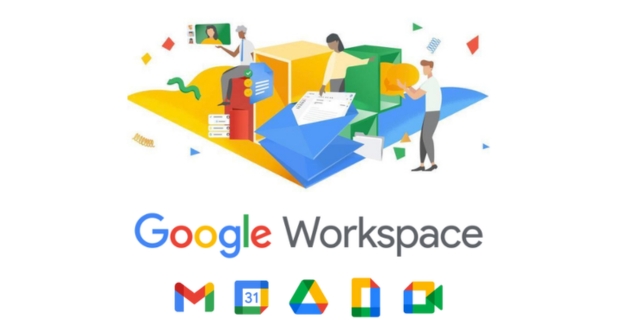
A. Initial Assessment
Understanding Business Objectives: Consultants conduct a thorough assessment to understand the unique goals and challenges of the organization.Current System
Evaluation: Evaluation of the existing IT infrastructure and collaboration tools to identify areas for improvement.
B. Customization and Implementation
Tailoring Google Workspace: Consultants customize Google Workspace based on the organization’s requirements and industry best practices.
- Phased Implementation: Strategic implementation in phases to minimize disruptions and allow for smooth adoption.
C. Training and Change Management
- User Training Programs: Designing and implementing training programs to ensure users are proficient in using Google Workspace.
- Change Management Strategies: Providing support and strategies to manage the cultural shift within the organization.
D. Ongoing Support and Optimization
- Continuous Improvement: Regularly assessing the performance of Google Workspace and implementing updates to optimize its functionality.
- User Support Services: Providing ongoing support to address user queries and troubleshoot issues.
Success Stories of Strategic Google Workspace Consulting
Large Enterprise Transformation:
- Challenges Faced:
Large enterprises often grapple with complex collaboration and communication issues due to the scale of their operations. Siloed information, inefficient workflows, and communication bottlenecks are common challenges. Legacy systems may hinder real-time collaboration, and integrating diverse tools used by different teams becomes a significant hurdle.
- Consulting Solution:
Strategic Google Workspace consulting for large enterprises involves a comprehensive analysis of the existing infrastructure and collaboration processes. The consultants work closely with the enterprise to understand specific pain points. The solution typically includes migrating to Google Workspace, configuring it to align with the enterprise’s unique needs, and integrating it seamlessly with other tools and systems. This might also involve user training programs to ensure a smooth transition.
- Impact:
The implementation of Google Workspace in large enterprises leads to a remarkable improvement in overall productivity. Real-time collaboration becomes a norm, breaking down silos and enhancing communication across departments. The centralized platform promotes transparency and accessibility, fostering a collaborative culture. The scalability of Google Workspace ensures that as the enterprise grows, the collaboration tools can evolve to meet new demands.
Small to Medium-Sized Business (SMB) Efficiency Boost:
- SMB Workflow Challenges:
SMBs face challenges related to limited resources, including budget constraints and a smaller workforce. Coordinating workflows and ensuring seamless collaboration can be challenging. SMBs might be using a mix of different tools for communication, project management, and document sharing, leading to inefficiencies and potential data silos.
- Consulting Impact:
Google Workspace consulting for SMBs involves tailoring solutions to address specific workflow challenges. This may include consolidating communication tools, implementing project management solutions within Google Workspace, and optimizing document-sharing processes. The consultants work closely with SMBs to understand their unique workflows and design a solution that streamlines operations without imposing unnecessary complexity.
- Impact:
The impact of Google Workspace consulting on SMBs is often transformative. By centralizing communication and collaboration tools, SMBs experience increased efficiency in day-to-day operations. The integrated nature of Google Workspace ensures that teams can collaborate seamlessly, leading to faster decision-making and improved project timelines. The scalability and cost-effectiveness of Google Workspace make it an ideal solution for SMBs looking to enhance productivity without breaking the bank.
Future Trends in Google Workspace Consulting
-
Integration with Artificial Intelligence:
AI-Powered Productivity Tools:
- Google Workspace is likely to incorporate more AI-driven features to boost productivity. This could include smart suggestions for email responses, automated document summarization, and intelligent task management.
- AI algorithms might be used to analyze user behavior, providing personalized recommendations within Google Workspace applications to streamline workflows.
Predictive Analytics:
- The integration of predictive analytics within Google Workspace can offer insights into user behavior and trends. This can be used to optimize workflows by predicting patterns and suggesting improvements.
- Predictive analytics can help organizations anticipate user needs, such as suggesting relevant documents, contacts, or tasks based on historical usage patterns.
-
Evolving Security Measures:
Advanced Threat Protection:
- Google Workspace may introduce more sophisticated threat detection mechanisms to counter evolving cyber threats. This could include advanced malware detection, phishing protection, and real-time monitoring of user activities to identify unusual patterns.
- Machine learning algorithms might be employed to analyze historical data and identify potential security threats before they escalate.
Data Privacy Enhancements:
- Continuous improvements in data privacy features are crucial to meet the ever-changing compliance requirements and address concerns related to user data.
- Google Workspace may enhance encryption protocols, provide more granular control over user data access, and introduce features to help organizations comply with data protection regulations.
These trends reflect the ongoing effort to leverage cutting-edge technologies, particularly AI, to enhance both productivity and security within Google Workspace. The integration of AI aims to make the user experience more intelligent and tailored while evolving security measures focus on staying ahead of cyber threats and ensuring robust data privacy compliance. As technology advances, Google Workspace is likely to adapt to incorporate these trends, providing users with more powerful and secure collaboration tools.
Key Components of Strategic Consulting Services:
- Security and Compliance:
- Data Protection: Implementing robust security measures involves safeguarding sensitive data from unauthorized access. This may include encryption, access controls, and data integrity checks.
- Regulatory Compliance: Ensuring compliance with industry regulations and standards means adhering to legal requirements and industry-specific guidelines. This could involve regulations such as GDPR, HIPAA, or other data protection laws.
- Threat Management: Regularly updating security protocols involves staying vigilant against emerging threats. This could include software updates, vulnerability assessments, and proactive measures to counter evolving cybersecurity risks.
- Workflow Optimization:
- Workflow Analysis: Analyzing existing workflows involves a comprehensive review of how tasks and processes are currently structured. This helps identify bottlenecks, redundancies, and areas for improvement.
- Process Streamlining: Designing and implementing streamlined processes aims to eliminate inefficiencies and enhance productivity. This may involve the introduction of new technologies, revised protocols, or automation tools.
- Automation with Google Workspace: Utilizing automation features within Google Workspace involves leveraging tools and scripts to automate routine tasks. This can lead to time savings, reduced errors, and improved overall efficiency.
- Collaboration and Communication:
- Team Communication: Facilitating effective communication involves ensuring that team members can easily and transparently communicate with each other. This may include the use of messaging platforms, project management tools, and regular check-ins.
- Virtual Meetings: Leveraging advanced features of Google Meet for virtual meetings and collaboration means utilizing video conferencing tools effectively. This might include features like screen sharing, breakout rooms, and integrations with other collaboration tools.
- Real-time Communication: Integrating chat and collaboration tools for real-time communication enhances the speed and efficiency of team interactions. This can involve the use of platforms like Google Chat or other similar tools that promote instant messaging and collaboration.
These key components highlight the multifaceted nature of strategic consulting services. They encompass not only technological aspects but also organizational and process-oriented considerations to create a comprehensive and effective strategy for business improvement.
The Role of Strategic Consulting in Google Workspace Adoption:
The Role of Strategic Consulting in Google Workspace Adoption” outlines a systematic approach to implementing and maximizing the benefits of Google Workspace within an organization. Let’s delve into each key component:
Needs Assessment:
- Collaboration with Stakeholders: Consultants engage with key stakeholders within the organization to understand their unique needs and challenges.
- Workflow Analysis: The consultants assess existing workflows, communication patterns, and the overall business structure to identify areas where Google Workspace can bring improvements.
- Requirements Identification: This phase aims to pinpoint specific requirements that Google Workspace can address, tailoring the implementation to the organization’s goals.
Customization and Configuration:
- Tailoring Google Workspace: Based on the needs identified, consultants proceed to customize the Google Workspace environment. This involves adjusting settings, creating custom email domains, and configuring security features to match the organization’s requirements.
- Organizational Structure Setup: Setting up organizational units within Google Workspace ensures a structure that aligns with the company’s hierarchy and departments.
- Security Configuration: Implementing security measures to safeguard data and ensure compliance with industry standards.
User Training and Adoption:
- Empowering Employees: Recognizing the importance of user adoption, strategic consultants conduct training sessions to equip employees with the knowledge and skills necessary for efficient use of Google Workspace.
- Collaboration Features Training: Users are educated on the various collaboration tools available, promoting effective teamwork and communication within the platform.
- Document Sharing Guidance: Training covers best practices for document sharing and collaboration, ensuring that employees can leverage Google Workspace’s capabilities to streamline their work.
- Communication Tools Mastery: Employees are guided on how to effectively use communication tools within Google Workspace, fostering efficient and seamless interactions.
In essence, this strategic consulting approach aims to not only implement Google Workspace but to integrate it seamlessly into the organization’s existing processes. By understanding the unique needs, customizing the platform accordingly, and ensuring widespread user adoption through comprehensive training, the consultants contribute to the successful assimilation of Google Workspace, fostering a more collaborative and productive work environment.
Conclusion
In conclusion, strategic Google Workspace consulting services have become indispensable for organizations seeking to harness the full potential of cloud-based collaboration tools. By tailoring Google Workspace to align with organizational goals, providing comprehensive training, and implementing robust security measures, consultants play a crucial role in driving efficiency and productivity. As technology continues to evolve, the future of Google Workspace consulting promises even more integration with advanced technologies, ensuring that businesses stay ahead in the ever-changing landscape of digital collaboration. Embracing strategic Google Workspace consulting is not just an investment in technology; it’s a strategic move toward a more collaborative, productive, and innovative future.


